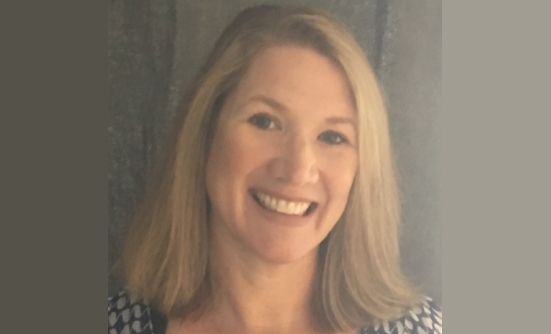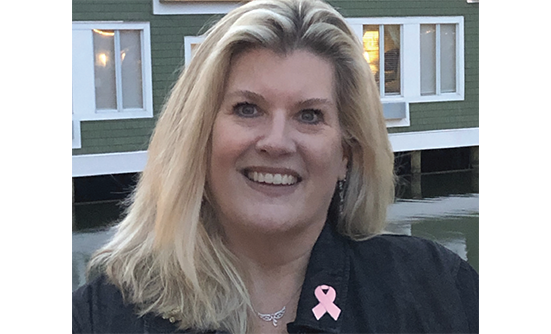Deciding when, what about, and how to disclose a cancer diagnosis—on the job or during a job interview—can feel downright monumental for patients and survivors. There is no one-size-fits-all approach; it’s as individual as your treatment regimen.
“Deciding whether to tell your supervisor or co-workers depends on the company and its culture, the job type, the expectations of the job, the person’s actual diagnosis, treatment, and their response to treatment,” says Rebecca V. Nellis, MPP, Executive Director of Cancer and Careers.
Peoples’ communication about their cancer varies widely, and figuring out a workable strategy is important—whether on the job you have now, or when applying for a new job, with your cancer diagnosis in tow.
On the Job
Life moves at warp speed once a cancer diagnosis drops. Sometimes that life-changing call comes during the workday, and it’s perfectly understandable that you may want to share the news at work.
But it’s better to pause and do some homework and planning before sitting down with your boss. Make a list, check it twice, and then see if your company is nice or not. Consider the following steps before making your decision regarding disclosure.
1. Talk with Your Medical Team About Your Actual Job
First, you must decide how important work is to you—in all ways. It’s a paycheck and health insurance, but it’s also part of your identity and how you provide value to the world. A job is tied to so many aspects of life, that a careful taking-of-stock is time well spent.
Once you’ve decided that you want to continue, if that’s the route you choose, it’s helpful to talk about what the main issues may be. Can you do the job? What accommodations must be made for you to continue? For instance, someone who works in sales should consider how much of the job is at a desk or traveling. Does the treatment make it possible to sit for long periods, or to lug a travel bag? If taking public transportation, how much exposure to germs will be involved?
Dave F., an outdoor education teacher, stopped leading programs once he and his medical team had a conversation about what he could do.
“The administration was incredibly supportive and gave me alternate responsibilities while in treatment for a goblet-cell carcinoid,” Dave said.
Knowing what a person can and can’t do will help determine whether to keep the job and, if yes, give the conversation with the boss some parameters.
2. Do Homework on Your Workplace
Learn the benefits your company offers, and what they cover. Do you get paid time off or sick time? If so, how much can you use? Are you able to telecommute if you need to stay home? Are there other employees already doing that?
Think carefully about your workplace culture. What’s happened when colleagues have taken time off to care for a spouse, or pick up a sick kid from school?
Some environments feel supportive, but they are not, and vice versa. Take the experience of Natalie S., who was diagnosed with chronic myeloid leukemia before starting her job at a hospital. She assumed that the hospital would be a supportive environment, but that wasn’t the case. “I struggled to get time off to see my doctor, and did not have a supportive boss. I eventually left and haven’t worked since. It gave me terrible anxiety.”
We rarely investigate how our employer administers its benefits, but little clues are dropped every day. Look for them.
3. Know the Law
Understand your rights, but use the law sparingly, and only when you need to.
Depending on your job, you may not need to disclose everything about your health to have access to the benefits your company, or the law, provides. Or, you may feel you need to disclose some information that gives you access to certain protections.
“The best way to approach your boss is to think about your health situation from the employer’s point of view,” says Ms. Nellis. “While it doesn’t work for every job or every person, offering your supervisor a plan that works for the business is a good place to start.”
Looking for a Job
Cancer may be at the forefront of your mind, but it’s not in the interviewer’s mind. Whatever brought you there—you got the ax, you can physically no longer do your old job, what you want in a job has changed after cancer—don’t make it all about cancer.
“People need to be the best super savvy job searchers; not the best super savvy cancer survivor job searchers,” notes Ms. Nellis.
1. Mind the Gap
Work isn’t what it used to be; people move from job to job and city to city to get promoted or start companies. Such changes have created greater flexibility for workers and increase the chance that an interviewer will not see the gap on your resumé as medically related.
The “gap question” is still standard, though, so be prepared to answer it. The swivel technique is a useful tool; acknowledge the question, but make sure you answer about how you’re right for the job. Such a response may go like this:
“It was a family issue, and it’s resolved now. And I’m really happy to be talking with you because x, y, and z, in my background connect with the work you’re doing here that I want to be a part of.”
2. Omit Information
There’s no way an interviewer can know everything about you. Highlight how your skills can produce what the company needs. Everything you share should relate to that connection.
All kinds of people have all kinds of complexities in their life—chronic illness, childcare, parental care. Although you might have learned some valuable life lessons from your cancer experience, it’s best to keep that information to yourself.
“Research shows that hiring managers are more likely to bring in people who haven’t disclosed something than people who have,” says Ms. Nellis.
Brenda G., a breast cancer survivor, didn’t hide her volunteer involvement in cancer awareness organizations before interviewing for a health-related job. “I felt it was an asset, and people at the company were open to my experience,” she says.
However, when she interviewed for a new position that was not health-related, Brenda didn’t mention her diagnosis. “I didn’t get the sense that people there were open to it, or that I would be supported, so I kept quiet,” she said.
3. There’s a Right Time and a Wrong Time
Interviewing is like dating—you reveal information at the right times. Even though you might have sweated a bit, wondering what a company’s sick leave looks like, it’s absolutely inappropriate to ask about it or any benefits-related matter during the first interview.
The right time to ask those questions may be late in the hiring process, or after you’re hired.
Also, know that it’s illegal for someone to ask about your health in a job interview. You don’t owe anyone anything about your health history. That doesn’t mean people won’t ask, or that they won’t misuse the answer if they do.
It is absolutely your right not to answer a question about your health.
Key Points
- Talk with your medical team about your job and what it will require of you
- Learn the benefits your company offers, and what it covers
- Get a feel for your workplace environment, and the openness of your colleagues
- It may be wise to wait until late in the interview process, or after you’re hired, to disclose your health history
Patient Resources
Cancer and Careers
www.cancerandcareers.org
Workplace Transitions
www.workplacetransitions.org















